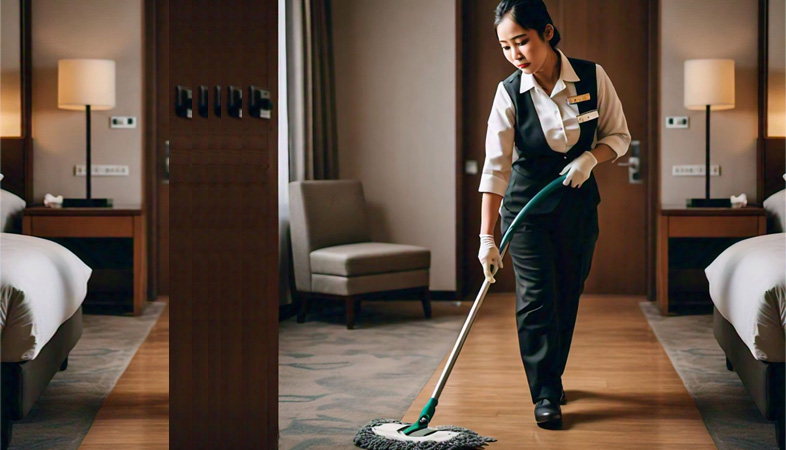Preventing Burnout in Housekeeping Staff: Best Practices for Hotels
By investing in their employees' wellbeing, hotels not only prevent burnout but also create a foundation for long-term success in the hospitality industry.
Housekeeping is one of the most physically demanding and
emotionally taxing roles in the hotel industry. Staff are expected to maintain
high standards of cleanliness and service, often under tight deadlines and with
little room for error. The pressures of meeting guest expectations, dealing
with fluctuating workloads, and managing repetitive tasks can lead to burnout,
a condition that can severely impact staff wellbeing, job performance, and
ultimately, guest satisfaction. Preventing burnout in housekeeping staff is not
only essential for maintaining a positive work environment but also crucial for
ensuring the smooth and efficient operation of a hotel. Implementing best
practices to support staff and reduce stress is vital for both employee
retention and long-term business success.
One of the most effective ways to prevent burnout is by providing housekeeping staff with adequate support. Often, housekeeping staff work in isolation, handling multiple rooms or sections of the hotel in quick succession. The lack of interaction with other team members can lead to feelings of isolation and stress. To combat this, hotels should encourage teamwork and create opportunities for staff to collaborate. Regular team meetings can foster a sense of community and provide a platform for discussing concerns or challenges. Additionally, having supervisors available to offer support and guidance can help staff feel more valued and connected to the larger hotel team, reducing feelings of overwhelm and exhaustion.
Another critical aspect of preventing burnout in housekeeping staff is ensuring that workloads are manageable. One of the primary causes of burnout in this sector is the constant pressure to meet high demands without sufficient rest or resources. Hotels can mitigate this by carefully managing staffing levels and room assignments. For example, ensuring that the number of rooms assigned to each housekeeper is realistic based on the size of the rooms, the complexity of cleaning tasks, and the overall workload for the day can prevent staff from becoming overburdened. By regularly assessing staffing needs and adjusting workloads accordingly, hotels can help prevent staff from becoming stretched too thin and reduce the risk of burnout.
Providing adequate training is another essential practice for preventing burnout. Many housekeeping staff members face a steep learning curve when starting, and inadequate training can lead to frustration and stress. Hotels should invest in comprehensive onboarding programs that teach not only cleaning techniques but also time management skills, how to handle difficult situations, and how to use the tools and equipment safely and efficiently. Continuous professional development, such as refresher courses or skill-building workshops, can help staff feel more confident in their roles and reduce the likelihood of mistakes or accidents, which can contribute to stress and burnout. Empowering housekeeping staff with the knowledge and skills they need to succeed can significantly enhance job satisfaction and prevent feelings of inadequacy.
Recognizing and rewarding the hard work of housekeeping staff is another crucial factor in preventing burnout. Often, housekeeping roles are undervalued compared to other positions in the hotel industry, leading to feelings of being overlooked and underappreciated. By regularly acknowledging the contributions of housekeeping staff, hotels can boost morale and make staff feel more valued. This can be as simple as offering verbal praise, providing small incentives or bonuses for outstanding performance, or celebrating team accomplishments through regular recognition programs. Acknowledging staff for their hard work fosters a positive work culture and reinforces the importance of their role in ensuring a high-quality guest experience, ultimately reducing feelings of burnout.
Preventing burnout in housekeeping staff requires a multifaceted approach that addresses workload management, teamwork, training, recognition, and work-life balance. By taking proactive steps to support staff, hotels can ensure a healthier, more productive workforce that is better equipped to meet the demands of the job. This, in turn, leads to higher employee morale, improved guest satisfaction, and a positive work environment where staff feel valued and respected. By investing in their employees' wellbeing, hotels not only prevent burnout but also create a foundation for long-term success in the hospitality industry.
.png)





























